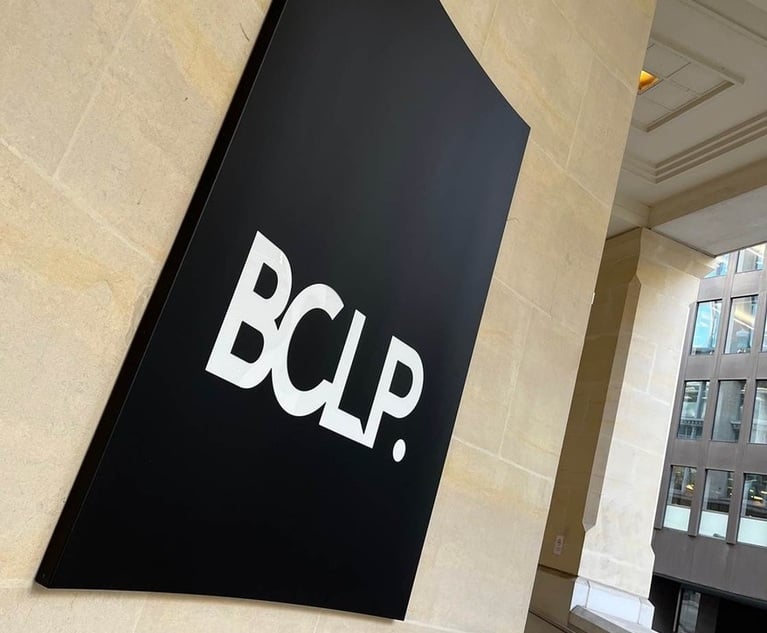Make yourself heard
Although academic preparation is fundamental to legal practice, succeeding as a lawyer takes an altogether different type of education. In the real world legal practitioners must learn how to deal with the needs of individual clients, be savvy with business administration and regularly engage in creative advertising - the latter, of course, being a relative newcomer to the range of skills fashioned by modern-day practitioners.Until deregulation of solicitor advertising in the mid-1980s, self-promotion through advertising was an entirely foreign concept to the legal sector. Traditional methods of sourcing clients involved developing a reputation for delivering results, and providing sound advice and excellence in service. Today, however, many of these ideals have faded behind the bright lights of law firm branding. While television campaigns, directory listings, and newspaper and radio advertising have done much to bolster the image of some law firms, the hype generated by their marketing departments often fails to reflect the reality in terms of what individual lawyers can provide.
December 03, 2008 at 07:58 PM
6 minute read
It's all very well having great academic credentials as a lawyer, but if you can't promote your services appropriately you'll fall behind, explains Yuri Rapoport
Although academic preparation is fundamental to legal practice, succeeding as a lawyer takes an altogether different type of education. In the real world legal practitioners must learn how to deal with the needs of individual clients, be savvy with business administration and regularly engage in creative advertising – the latter, of course, being a relative newcomer to the range of skills fashioned by modern-day practitioners.
 Until deregulation of solicitor advertising in the mid-1980s, self-promotion through advertising was an entirely foreign concept to the legal sector. Traditional methods of sourcing clients involved developing a reputation for delivering results, and providing sound advice and excellence in service. Today, however, many of these ideals have faded behind the bright lights of law firm branding. While television campaigns, directory listings, and newspaper and radio advertising have done much to bolster the image of some law firms, the hype generated by their marketing departments often fails to reflect the reality in terms of what individual lawyers can provide.
Until deregulation of solicitor advertising in the mid-1980s, self-promotion through advertising was an entirely foreign concept to the legal sector. Traditional methods of sourcing clients involved developing a reputation for delivering results, and providing sound advice and excellence in service. Today, however, many of these ideals have faded behind the bright lights of law firm branding. While television campaigns, directory listings, and newspaper and radio advertising have done much to bolster the image of some law firms, the hype generated by their marketing departments often fails to reflect the reality in terms of what individual lawyers can provide.
By and large, lawyers are pre-programmed not to boast about their skills and successes; it simply doesn't sit comfortably with their responsibilities as officers of the court, nor with the longstanding traditions of professional conduct. However, the development of competition among legal practitioners over the past 20 years has forced a radical change in the way lawyers go about portraying themselves. Enormous resources are dedicated to law firms' marketing departments, which develop advertising campaigns to reach potential clients.
Unfortunately, over time, a number of law firms have adapted their advertising strategies to create what are effectively case farming centres – with the sole aim of sorting through high volumes of trusting customers in order to spot the gemstone lucrative cases. With the existence of such potholes along the road towards access to justice, should consumers of legal services believe any of the advertising hype?
Some will argue that increased competition, arising through changes in advertising rules, has made a mockery of legal practice and has served to benefit only those lawyers who regard law as more of a business than a profession.
Indeed, the benefits gained by such lawyers over the last two decades have been at the expense of ordinary consumers, and have contributed to the alarming number (and nature) of complaints about legal practitioners in the UK each year. Yet, there are a vast number of lawyers out there who have continued to work modestly with traditional values and have been revered for their professionalism by both their colleagues and (albeit fewer in number than they ought to be) clients. The problem is that these lawyers have little patience for the demands of modern legal practice. They feel uncomfortable being up front about their wealth of expertise and knowledge. Consequently, their professional victories are readily overshadowed by the continuing rise of their business-savvy counterparts. However, with burgeoning changes in IT, and a new era of competition within the legal profession set to be initiated by the introduction of the Legal Services Act 2007, we may be about to see another dramatic shift in the lawyers' food chain.
Factual information about the experience and expertise of individual lawyers is the marketing commodity of the future. We need only look at the success of lawyers such as Fiona Shackleton, famous for representing Paul McCartney and Madonna in their high-profile divorce cases, and at 'Mr Loophole', Nick Freeman, best known as a celebrity motoring lawyer, to see the influence model of marketing working at its very best. Here, consumer choice is influenced by knowledge of the lawyer's experience and success rate.
The extraordinary changes in consumer buying habits ushered in by online technologies are sending clear messages to law firms about the need to reassess the value of advertising hype. Ultimately, this could mean restoring the balance in the process of matching clients with lawyers. The internet is giving some of the control back to consumers, who are increasingly able to sort through the experience, qualifications and other background information of individual practitioners. The average consumer looking for legal expertise will be influenced in the same way as the clients of Shackleton and Freeman – they will be looking for factual information about the lawyer's expertise in the relevant area. The option to access and validate information about service providers is a more attractive consumer proposition than the 'trust me' message frequently featured in lawyers' own advertising campaigns. Such development in consumers' shopping habits sends a strong message to the legal profession about the way individual lawyers should market themselves. With a move towards internet-based consumerism in other sectors of the economy, such as insurance, travel, and finance, and with price-comparison websites making a profit from merchandising information, it is only a matter of time before similar changes appear on the legal horizon.
Hypothetical scenarios that have been talked about since the introduction of the Legal Services Act seem to be fast becoming a reality. A few months ago it was reported that Moneysupermarket.com, the price-comparison website, is to start selling legal business sales leads to law firms involved in conveyancing, probate and employment, with a personal injury leads service also set to be launched.
At the basis of such developments lies the consumer's inherent protest against advertising hype. Consumers are tired of having information pushed onto them by self-serving advertising campaigns. They much prefer to pull information off line about desired products and services. It is, therefore, the responsibility of – as well as an opportunity for – representatives of the legal profession to make objective and verifiable information readily available online.
New legal directories, and referral and legal broking services, are regularly appearing on the web, inviting lawyers to register their experience and practice profiles. Lawyers are encouraged to contribute as much distinguishable information about their professional experience as possible, as consumers will seek out highly specific information, such as which lawyer acted against a particular bank or insurance company.
Savvy consumers understand that a lawyer with an intimate knowledge of their opponent will have a unique insight into the viability of a proposed law suit. For example, the lawyer will know the opponent's attitude towards court trials, alternative dispute resolution, and out-of-court settlements. Likewise, they will be familiar with the opponent's legal team and may have the benefit of previously running similar types of cases against them. Overall, this level of knowledge potentially amounts to a considerable saving in terms of time and legal fees for a consumer – and, of course, a good match is likely to deliver a better result.
Dr Yuri Rapoport (SJD) founded Prime Law Brokers (Australia). He has launched an online version of a similar service in the UK, called Rapoport's Directory.
This content has been archived. It is available through our partners, LexisNexis® and Bloomberg Law.
To view this content, please continue to their sites.
Not a Lexis Subscriber?
Subscribe Now
Not a Bloomberg Law Subscriber?
Subscribe Now
NOT FOR REPRINT
© 2025 ALM Global, LLC, All Rights Reserved. Request academic re-use from www.copyright.com. All other uses, submit a request to [email protected]. For more information visit Asset & Logo Licensing.
You Might Like
View All
Jones Day Names New Practice Leaders in Brussels, Latin America and the US

Lawyers React To India’s 2025 Budget, Welcome Investment And Tax Reform

BCLP Joins Crowded Saudi Legal Market with Plans to Open Two Offices
3 minute readTrending Stories
Who Got The Work
J. Brugh Lower of Gibbons has entered an appearance for industrial equipment supplier Devco Corporation in a pending trademark infringement lawsuit. The suit, accusing the defendant of selling knock-off Graco products, was filed Dec. 18 in New Jersey District Court by Rivkin Radler on behalf of Graco Inc. and Graco Minnesota. The case, assigned to U.S. District Judge Zahid N. Quraishi, is 3:24-cv-11294, Graco Inc. et al v. Devco Corporation.
Who Got The Work
Rebecca Maller-Stein and Kent A. Yalowitz of Arnold & Porter Kaye Scholer have entered their appearances for Hanaco Venture Capital and its executives, Lior Prosor and David Frankel, in a pending securities lawsuit. The action, filed on Dec. 24 in New York Southern District Court by Zell, Aron & Co. on behalf of Goldeneye Advisors, accuses the defendants of negligently and fraudulently managing the plaintiff's $1 million investment. The case, assigned to U.S. District Judge Vernon S. Broderick, is 1:24-cv-09918, Goldeneye Advisors, LLC v. Hanaco Venture Capital, Ltd. et al.
Who Got The Work
Attorneys from A&O Shearman has stepped in as defense counsel for Toronto-Dominion Bank and other defendants in a pending securities class action. The suit, filed Dec. 11 in New York Southern District Court by Bleichmar Fonti & Auld, accuses the defendants of concealing the bank's 'pervasive' deficiencies in regards to its compliance with the Bank Secrecy Act and the quality of its anti-money laundering controls. The case, assigned to U.S. District Judge Arun Subramanian, is 1:24-cv-09445, Gonzalez v. The Toronto-Dominion Bank et al.
Who Got The Work
Crown Castle International, a Pennsylvania company providing shared communications infrastructure, has turned to Luke D. Wolf of Gordon Rees Scully Mansukhani to fend off a pending breach-of-contract lawsuit. The court action, filed Nov. 25 in Michigan Eastern District Court by Hooper Hathaway PC on behalf of The Town Residences LLC, accuses Crown Castle of failing to transfer approximately $30,000 in utility payments from T-Mobile in breach of a roof-top lease and assignment agreement. The case, assigned to U.S. District Judge Susan K. Declercq, is 2:24-cv-13131, The Town Residences LLC v. T-Mobile US, Inc. et al.
Who Got The Work
Wilfred P. Coronato and Daniel M. Schwartz of McCarter & English have stepped in as defense counsel to Electrolux Home Products Inc. in a pending product liability lawsuit. The court action, filed Nov. 26 in New York Eastern District Court by Poulos Lopiccolo PC and Nagel Rice LLP on behalf of David Stern, alleges that the defendant's refrigerators’ drawers and shelving repeatedly break and fall apart within months after purchase. The case, assigned to U.S. District Judge Joan M. Azrack, is 2:24-cv-08204, Stern v. Electrolux Home Products, Inc.
Featured Firms
Law Offices of Gary Martin Hays & Associates, P.C.
(470) 294-1674
Law Offices of Mark E. Salomone
(857) 444-6468
Smith & Hassler
(713) 739-1250









